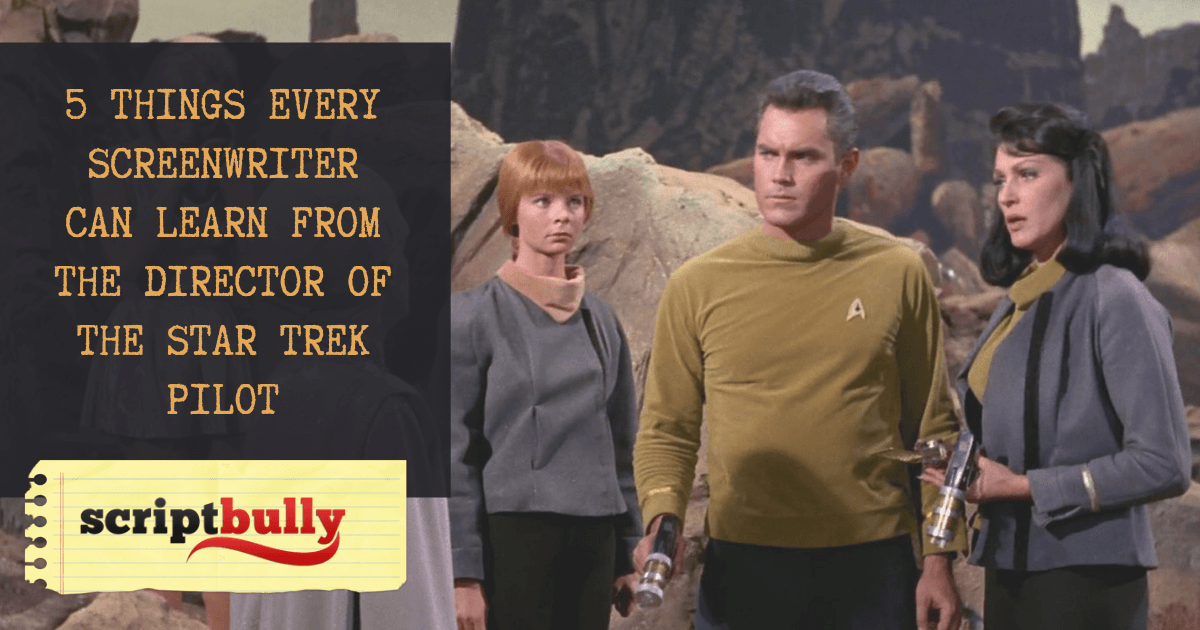Bad guys. Nothing is as quite much fun – when learning how to write a movie – then to write a good movie villain. But many screenwriters create “baddies” that are either too timid, too weird…or just plain too evil. (Is that possible when learning the art of writing a movie? Turns out…yeah!)
In this video, we share 3 tips for creating a screenplay villain that will do its REAL JOB: push your hero to their limits and make the task of learning how to write a movie with a killer Act II that much easier.
Key Takeaways (or For Those Who Have ADD):
- Be extra-, super- clear about the villain’s agenda
- Give them way more advantages than your hero
- Make them more confident (even appealing) than your hero
Video Transcript for: How to Write a Movie Villain That Doesn’t Totally Suck
Hi there, it’s Michael from ScriptBully magazine. And in this video we’re going to delve into the strange, mysterious and diabolocially wonderful world of screenplay villains.
Hold on to your lightsaber and your Harry Potter wand…things are gonna get scary.
So, villains aren’t just the most fun for actors to play, they are also some of the most fun you can have as a screenwriter.
Does anybody watch Silence of the Lambs and not think…man, that looked like fun to write?
But the villain in your script also serves a more functional role. They ensure that your script isn’t too flabby in the CONFLICT DEPARTMENT.
See, the villain’s job is to continually TEST your main character to ensure they REALLY REALLY want what they’re going after.
The hero might be the heart of your screenplay, but the villain is definitely the spine.
and without a good one your script will be weak, unmotivated, and definitely unsold.
So here are 3 tips to ensure your villains are as strong, menacing and kick ass as possible when writing scripts.
Tip No.1: Make Their Agenda Specific and Extreme
Ya gotta make your villain’s agenda strong. Really strong. And very detailed.
Lex Luthor doesn’t simply want to take over the world. He wants to create earthquakes that force California to fall into the ocean so he can capitalize on his Arizona real estate.
Darth Vader doesn’t just want to defeat the rebellion.
He wants to create a battle station (Death star) that can destroy the Rebel Base in five minutes or less.
Commodus in Gladiator doesn’t just want to kill Maximus, he wants to enslave him, torture him, defeat him (unfairly) and embarrass him in front of the entire nation of Rome. (Then kill him.)
It may take awhile for your hero to adjust and learn exactly what they want and what the’re going after.
Not so for the baddie. Your villain must have their agenda early, and it must be big.
Your villain must have their agenda early, and it must be big.
Tip No.2: Make Them Powerful
This one may seem super obvious. But you’d be surprised how many scripts I read where the villain is in a lower station in life than the hero.
No! No! No! This just won’t work.
If our hero is a city district attorney then the villain must be the state attorney general or the governor or the crime boss who controls the city.
Not the janitor who cleans his waste paper basket.
You gotta give your villain every advantage and every bit of power you can. And then slowly have your hero battle these advantages.
You gotta give your villain every advantage and every bit of power you can. And then slowly have your hero battle these advantages.
Your Act II will thank you for it.
Tip No.3: Make Them Quieter and More Confident Than your Hero
This one’s a bit of a personal preference.
But after having read so many scripts where the villain was totally crazy and yelling every single minute, you’d be surprised how refreshing it was to read a script with a villain who was quiet, composed, controlled.
This tends to make your villain way more menacing. (And in case you weren’t sure, menacing is real, real good.)
This doesn’t mean your villain can’t lose their mind. They can. (Just make sure it’s something your hero did. This will show progress in your hero.
And it will also make your villains really stand out.
So…what do you do now? Well, I’d recommend for the next month or so, each time you watch a TV show or movie ask yourself:
- Is the villain’s agenda strong and specific
- is the villain powerful?
- Is the villain quiet and menacing or loud and blustery?
Trust me, do this a couple times and you’ll find your villain skills, and your mastery of how to write a movie, is sharpened in no time.
Write well, be awesome and don’t forget to kick writer’s block in the ass!
What’s Your Screenwriter Take?
Have you picked up a few thing or two learning how to write a movie villain? We’d love to hear about it in the comments below.






